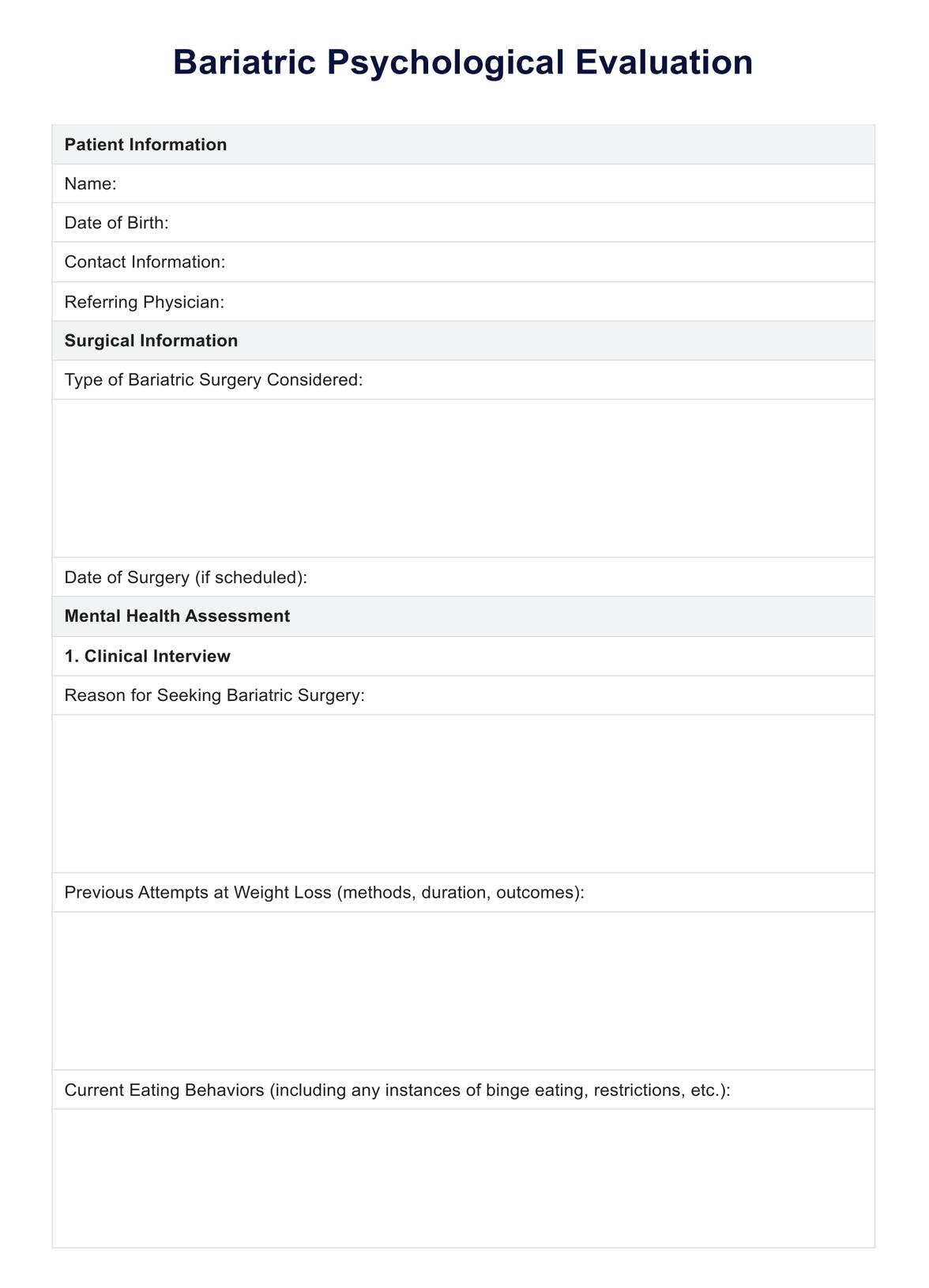Candidates for bariatric surgery looking to understand their emotional readiness for surgery and subsequent lifestyle changes.

Bariatric Psychological Evaluation
Explore our comprehensive guide on Bariatric Psychological Evaluation to understand the importance, process, and benefits for surgery candidates.
Use Template
Bariatric Psychological Evaluation Template
Commonly asked questions
Mental health professionals assess eating behaviors, depression, emotional health, readiness for surgery, and potential psychological risks.
Carepatron provides tools and software to simplify the psychological evaluation process for professionals and patients, ensuring a seamless and efficient psychological assessment.
EHR and practice management software
Get started for free
*No credit card required
Free
$0/usd
Unlimited clients
Telehealth
1GB of storage
Client portal text
Automated billing and online payments











